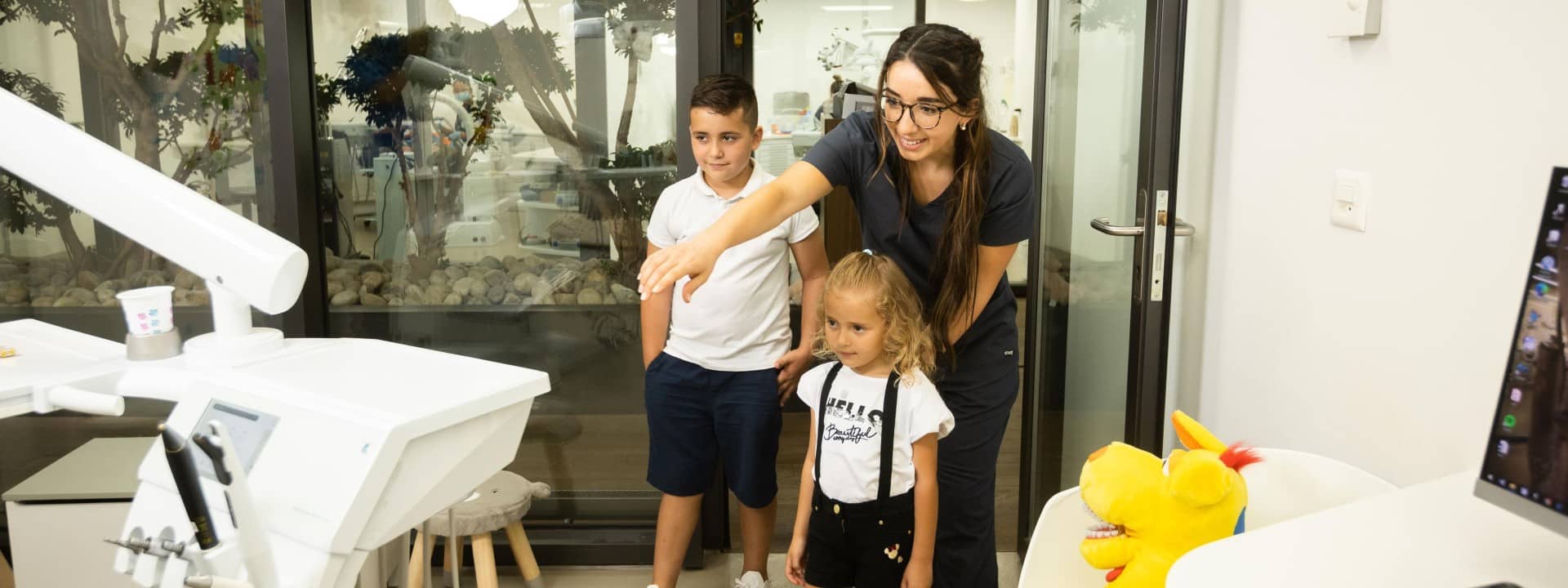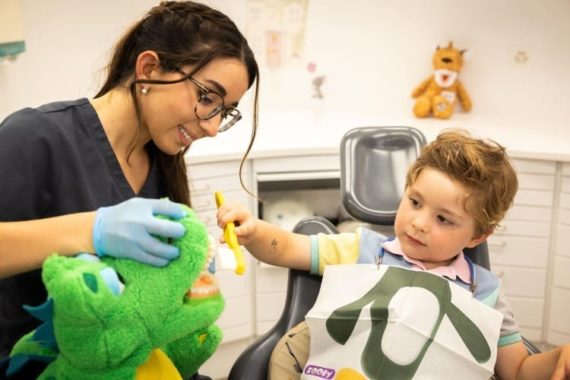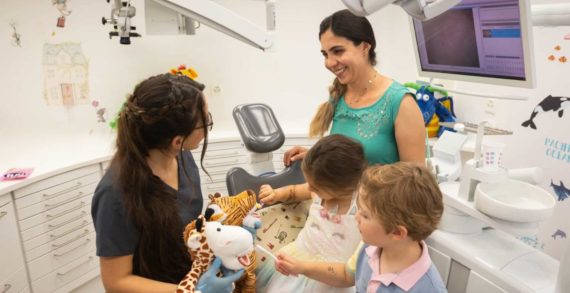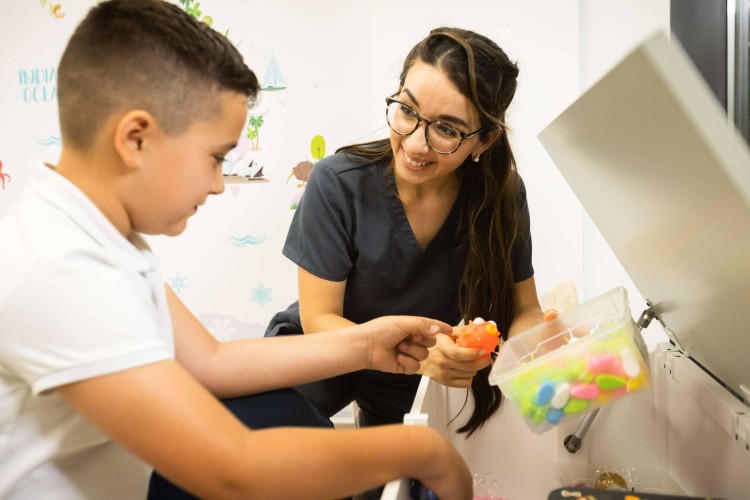How do I prepare for a pediatric dentist appointment?

Appointments with your pediatric dentist can become a source of stress for your children, with repercussions for the whole family environment. The more relaxed your child arrives at the appointment, the more enjoyable the consultation will be for the whole family.
Preparing your child for this first appointment is very important…
Preparing your child in this way is fundamental to ensuring that he or she has a pleasant consultation and positive memories of it. The role of the parents and the family as a whole is essential to ensure that the child arrives relaxed and that the appointment goes smoothly.
There are a number of important tips to ensure that visits to the pediatric dentist go as smoothly as possible. Here are our top recommendations.
- Scheduling the appointment is already of particular importance: we advise you to schedule this consultation on a day when the child has no other medical appointments or other activities to worry about, or which may tire him too much.
- Choose a quiet day, or arrange a pleasant activity of your partner's choice in the hours before the appointment.
- Avoid scheduling this first pediatric dental appointment during one of your children's other recreational activities (dance class, music, activities with friends) so that they don't experience it as a punishment, but as a planned "new activity".
You can also actively involve your child in preparing for the appointment with the pediatric dentist: many children love to dress up or style their hair in a special way for special occasions such as birthdays, school outings… You can give them the freedom to choose their favorite clothes, hairstyle, wear a disguise… “for this occasion at the dentist”. This way, they can associate the appointment with a fun and playful moment in the dentist’s company.
These moments of complicity with the practitioner are very important for the child to learn to trust and feel in a familiar environment.

Certain objects, stuffed animals and toys can be reassuring for children, and they can be brought to the consultation! Children will always be able to attach themselves to their “cuddly toy”… So don’t hesitate to involve your child before the appointment by telling him or her that “the cuddly toy” can be brought to the dentist.
The pediatric dentist can then take advantage of the presence of this object and use it to comfort, motivate or entertain the child. The “doudou” can sometimes even be used as a model to explain procedures and equipment.
The earlier a child is used to going to the dentist, the more comfortable he or she will feel. We therefore recommend scheduling the first appointment early enough in childhood…even if he certainly won’t remember it consciously. As he grows up, he’ll understand that this is a familiar environment to which he comes regularly without fear.
Regular visits from an early age help to create positive memories in this familiar context, especially when everything’s going well, with no pain and no need for care. As a result, the more confident your child feels, the more receptive and open he’ll be to familiarizing himself with the instruments of care. He will therefore be more willing to accept any care that may be required.
If you think your child might have a hard time preparing for dental care, it's also a good idea not to tell your child about the dental check-up appointment... with the idea that his or her dental appointment will be perceived as something harmless.

What is the role of the companion?
The person in charge of accompanying the child plays a fundamental role! Don’t pass on any stress or fear of the dentist…
Bring your child to the appointment as “neutrally” as possible, just as you would for any other “ordinary” appointment.
This way, your child won’t associate any particular feelings with the appointment, and will come relaxed, just like any other activity in the company of parents. The presence of just one parent, grandparent or relative is generally always sufficient.
Rarely – usually at the child’s request – is the presence of both parents necessary, but if the situation could be perceived by the child as something “serious”.
Although it may seem counter-intuitive, it’s best not to prepare your child to have to behave in a particular way during his visit. For example, “be good, don’t move, don’t scream, don’t be afraid, don’t cry” or “you have to be brave, you won’t get hurt”, as the child may only retain the fear of what’s going to happen and become even more apprehensive about the consultation. Threatening him will only increase his anxiety about the consultation.
You should also avoid typical anxiety-inducing words such as “fear”, “pain”, “boo-boo”, “needle”, “injection”, “trembling”, “machine”…
Leave it to the dentist to explain to the child in detail any treatment that may be necessary, using playful, well-chosen words.

In a nutshell...
Explain as much as possible to the child that the dentist is a nice, caring and friendly person.
Children should not be left alone with the dentist if they prefer the presence of a parent or carer.
Feel free to share your own positive experience if you wish, especially if you are treated at the same center or by the same practitioner.
Give preference to a playful account of your experience to motivate the child to come (rinsing the mouth with strawberry syrup, sitting on the dentist’s chair that looks like a luna park, the sound of a plane, magic light… and even the television if necessary on the ceiling at the dentist’s!)